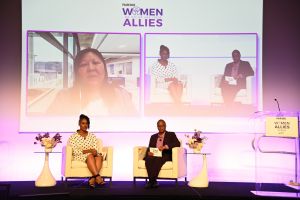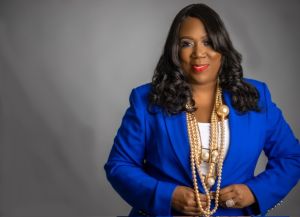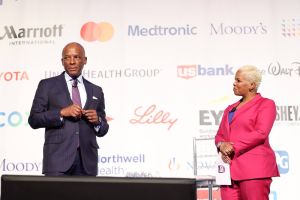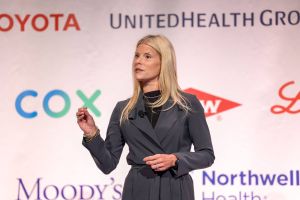During the second session of Fair360, formerly DiversityInc’s 2020 virtual event, “Supplier Diversity: New Trends, Innovative Solutions,” panelists discussed best practices in recruiting diverse vendors. National LGBT Chamber of Commerce (NGLCC) co-founder and president Justin Nelson; Disability:IN president and CEO Jill Houghton; and INROADS president and CEO Forest Harper participated in the session, explaining how their organizations act as the liaisons between diverse vendors and large corporations.
Working with Corporations to Find Diverse Vendors
The panelists began by describing the focuses of their respective organizations. INROADS works to develop underserved students and partners with Fortune 500 companies to supply talent. The organization also helps Fortune 500 companies develop diversity strategies and pipelines.
NGLCC works with 300 corporate partners to help them engage with LGBTQ-owned businesses. The organization also offers corporate partners mentorship on how to engage these vendors. Nelson explained that the NGLCC often works with its partners to meet their specific needs. It also frequently partners with employee resource groups (ERG) at companies to offer education. More than 93% of the companies on Fair360, formerly DiversityInc’s 2020 Top Companies for Supplier Diversity specialty list sponsor Disability:IN.
“We have a philosophy that we need to be flexible in that partnership because the ‘one size fits all’ is not necessarily the right way to do business with our corporate partners,” Nelson said. “Each of those partners, while we primarily work with them all around supplier diversity, also has other unique needs in engaging with the community, whether it be through human capital, market access, whatever the case may be. So, we really look at ourselves as a one-stop shop for our corporate partners to be able to engage with the LGBTQ community.”
Homing in on another dimension of diversity, Disability:IN focuses on disability inclusion and helps companies understand different disabilities and connect with disabled-owned businesses. Eighty percent of the companies on Fair360, formerly DiversityInc’s 2020 Top Companies for Supplier Diversity specialty list sponsor Disability:IN.
“We are that place where companies come together to learn from each other about disability and inclusion across a business,” Houghton said.
Working with Diverse Vendors to Network with Corporations
In addition to partnering with vendors, these organizations also offer services like mentorship and certification. At INROADS, Harper explained that about 38% of its more than 40,000 alumni are entrepreneurs. INROADS connects its entrepreneur alumni to the supplier diversity programs to more than 200 corporate partners.
“Our obligation is to introduce them to our corporate partners… We can be a very visible opportunity to be able to help those minority-owned businesses get linked into corporate America,” he said.
Both the NGLCC and Disability:IN certify small businesses as LGBTQ-owned and disability-owned vendors, respectively. This certification helps ensure the credibility of these businesses’ diversity claims so corporations looking for diverse suppliers can be confident in their decisions to work with them. In addition to certification, they also provide education, mentorship and development opportunities to the businesses in their networks.
Houghton said Disability:IN also focuses on elements of intersectionality. For example, if a business owner is a woman of color with a disability, Disability:IN will work alongside other partner organizations — like NGLCC, the Women’s Business Enterprise National Council (WBENC), the National Minority Supplier Development Council (NMSDC) or the National Veteran-Owned Business Association (NaVOBA) to certify and support her business.
“The one thing that I would add that we deeply value is the opportunity to work together with our peers at the different organizations that are also certifying bodies and to try to leverage that intersectionality and the strength of us all working together to help the certified suppliers that we’re working with,” she said.
Advice for Companies Trying to Recruit Diverse Vendors
The panelists offered a number of tips for companies looking to begin or grow their supplier diversity programs.
Houghton said that overall, companies should champion the issue of disability if they are looking to connect with disability-owned vendors. She recommended corporations fill out the Disability Equality Index to receive a grade on their disability inclusion, as well as paying attention to small details like ensuring information is presented in an accessible way for individuals with visual or other impairments.
Harper recommended engaging with suppliers’ report cards. After a business’s first year of work as a diverse vendor, it will fill out a report card. The companies it works with will post that report card as proof of performance. Harper said these report cards often go overlooked.
“I encourage our corporate partners to take a timeout once those statement of works and deliverable services have been done, and pick a moment to get some feedback on how the performance went,” he said. “Those minority vendors spend a lot of hard work, a lot of hard time here, and you may be overlooking that versus their reports. So, I encourage you to build some kind of reporting system so you can hear back from them and really read it because some outstanding work and deliverables have been done by minority vendors. And we don’t take the time to look at the end-of-the-year report.”
The panelists also stressed the importance of companies and vendors supporting others within the community during COVID-19.
“I think suppliers need to be checking in with companies and having that kind of dialogue with each other so that they can better understand where they’re each coming from and find ways to collectively meet their needs for us,” Houghton said. She also emphasized that corporations can also use their resources to help suppliers leverage and learn about digital strategies to conduct business.
Ultimately, supporting diverse-owned businesses is not only good for companies, but it is good for communities, Harper stressed, because small businesses are the engines of the economy. Small businesses hire individuals in local communities and help strengthen local economies.
“When we touch one small minority-owned business, we’re impacting an entire family and a community at the same time,” he said.


















